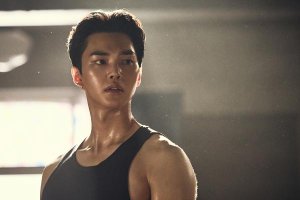Weak Hero Class 2 — A Storm of Violence Without the Heartbeat of Part One
Weak Hero Class 2 arrives with heightened expectations, following the exceptional emotional resonance of its first season. Yet despite its impressive intensity and visual prowess, the second installment left me feeling disconnected, longing for the soulful storytelling that once defined the series.
One of the greatest strengths of Weak Hero Class 1 was its intricate balance between brutal realities and tender human connection. It was not just a story of violence — it was a poignant exploration of friendship, loyalty, and survival. Each fight in the first season was steeped in context; it carried emotional weight, often revealing the characters' vulnerabilities and desperate need for belonging. Violence was never gratuitous — it was a last resort, an act of desperation or protection, making every blow feel necessary, almost inevitable.
In contrast, Weak Hero Class 2 seems to have shifted its focus almost entirely toward the spectacle of violence. While the production values are commendable — the action sequences are visceral, raw, and technically brilliant — the narrative often feels hollow. The relentless fights lack the strong emotional undercurrent that once made the pain onscreen deeply personal. Here, violence seems to occur for violence's sake, with the reasons behind the endless power struggles remaining flimsy, almost superficial.
I do appreciate that adolescence can be a chaotic, tumultuous time, where pride, anger, and insecurity fuel rash decisions. Teenagers can indeed be irrational in their quest for dominance and respect. However, the sheer extent of the brutality in Weak Hero Class 2, without sufficient emotional grounding, made it difficult for me to fully engage with the characters' journeys. I found myself questioning — why are they fighting so hard? What are they truly trying to defend or prove?
That said, the drama is not without merit. The deep bonds of friendship, a hallmark of the series, continue to shine in certain moments. Su Ho's arc, in particular, was beautifully tragic, evoking genuine sympathy and heartbreak. I also felt a profound sadness for Baek Jin, whose suffering was portrayed with a quiet intensity that lingered even after the final scene. These flashes of emotional truth reminded me of what the Weak Hero series is capable of when it taps into the human spirit beneath the fists.
Yet overall, the sequel struggles to match the emotional layering and character depth that made the original so memorable. Weak Hero Class 1 was a story about survival against odds, about fragile young men forging bonds to shield themselves from an unforgiving world. Weak Hero Class 2, by comparison, feels like a story of endless confrontation, with too few moments of introspection or growth to make the violence truly meaningful.
In the end, Weak Hero Class 2 roars with anger but often forgets to whisper the quieter truths about pain, friendship, and resilience that once set this series apart. It is a visually powerful sequel — but one that left me missing the soul of its predecessor.
One of the greatest strengths of Weak Hero Class 1 was its intricate balance between brutal realities and tender human connection. It was not just a story of violence — it was a poignant exploration of friendship, loyalty, and survival. Each fight in the first season was steeped in context; it carried emotional weight, often revealing the characters' vulnerabilities and desperate need for belonging. Violence was never gratuitous — it was a last resort, an act of desperation or protection, making every blow feel necessary, almost inevitable.
In contrast, Weak Hero Class 2 seems to have shifted its focus almost entirely toward the spectacle of violence. While the production values are commendable — the action sequences are visceral, raw, and technically brilliant — the narrative often feels hollow. The relentless fights lack the strong emotional undercurrent that once made the pain onscreen deeply personal. Here, violence seems to occur for violence's sake, with the reasons behind the endless power struggles remaining flimsy, almost superficial.
I do appreciate that adolescence can be a chaotic, tumultuous time, where pride, anger, and insecurity fuel rash decisions. Teenagers can indeed be irrational in their quest for dominance and respect. However, the sheer extent of the brutality in Weak Hero Class 2, without sufficient emotional grounding, made it difficult for me to fully engage with the characters' journeys. I found myself questioning — why are they fighting so hard? What are they truly trying to defend or prove?
That said, the drama is not without merit. The deep bonds of friendship, a hallmark of the series, continue to shine in certain moments. Su Ho's arc, in particular, was beautifully tragic, evoking genuine sympathy and heartbreak. I also felt a profound sadness for Baek Jin, whose suffering was portrayed with a quiet intensity that lingered even after the final scene. These flashes of emotional truth reminded me of what the Weak Hero series is capable of when it taps into the human spirit beneath the fists.
Yet overall, the sequel struggles to match the emotional layering and character depth that made the original so memorable. Weak Hero Class 1 was a story about survival against odds, about fragile young men forging bonds to shield themselves from an unforgiving world. Weak Hero Class 2, by comparison, feels like a story of endless confrontation, with too few moments of introspection or growth to make the violence truly meaningful.
In the end, Weak Hero Class 2 roars with anger but often forgets to whisper the quieter truths about pain, friendship, and resilience that once set this series apart. It is a visually powerful sequel — but one that left me missing the soul of its predecessor.
Was this review helpful to you?


























